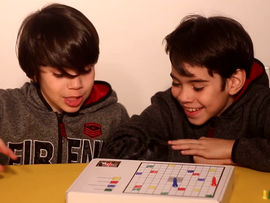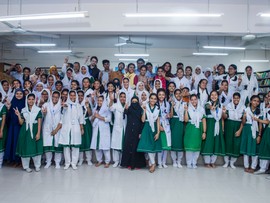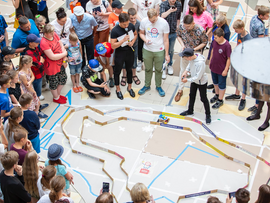DR ultra:bit
Cracking the climate code with the micro:bit
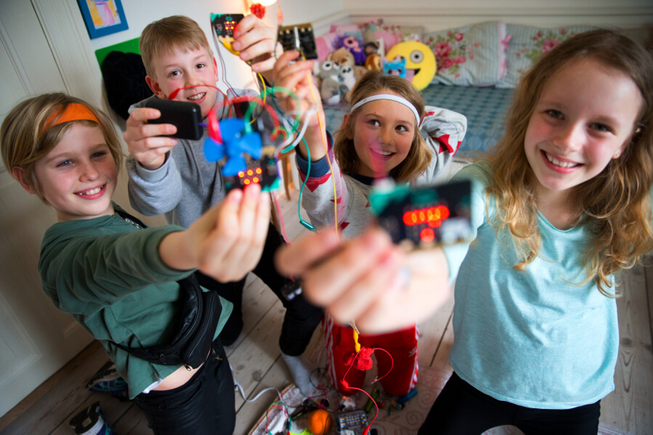
DR
In Denmark, young people are using the micro:bit to come up with amazing tech ideas to make their parents more climate-friendly. The Crack the Climate Code competition, running throughout autumn 2019 and born out of Denmark’s ultra:bit project, is offering prizes to children aged 9-12 for the best idea and best solution.
Led by the national broadcaster DR, ultra:bit has reached 90% of Danish fourth-graders (aged 9-10). The aim has been to unleash creativity through coding, and children have used the micro:bit to make everything from humidifiers and mini-windmills to pedometers and alarms. To help spark children’s interest in the project, DR incorporated the micro:bit into some of its most popular television programmes and into YouTube content featuring well-known TV hosts.

They get super inspired, and really move on. They don't have any barriers to learning how to program as we adults have. They just do it.

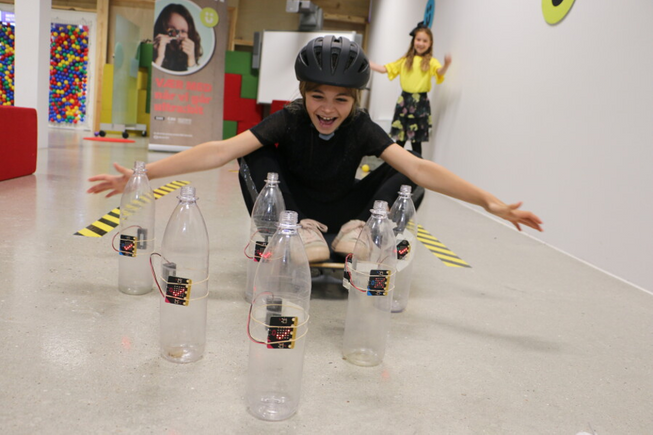
Human bowling’ with micro:bit pins
Universe Science Park
DR found that teachers, most of whom were not technology specialists, felt more confident if they could incorporate the micro:bit into their own subjects, so it developed simple exercises for use in all lessons. Thousands of teachers attended a three-hour micro:bit workshop and all materials, including an interactive introductory course covering the basics of coding, were available via an app.
An evaluation of the ultra:bit project showed that 90% of teachers found it easier to code after taking part, while 85% said they felt well-prepared to enable students to use technology for creativity. A whopping 96% of teachers said their students wanted to learn more about coding after using the micro:bit, and 95% said students found it easier to code than they thought.
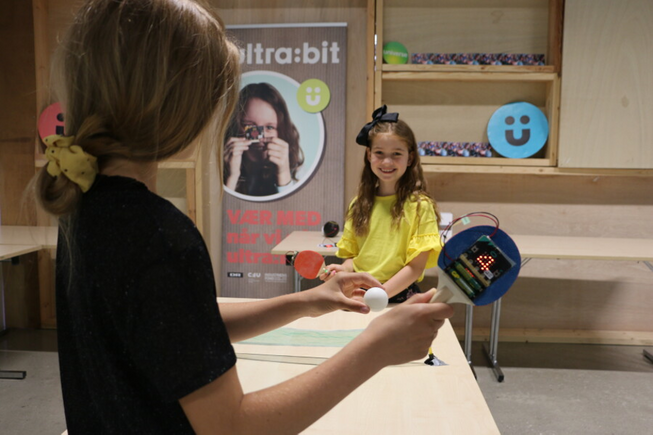
Universe Science Park
At a recent Climate Code camp in Copenhagen, the class ‘4.A’ at Gammelgaardsskolen made a fish that can collect rubbish in the surface of the harbour basin in the city of Aarhus. The fish is called 'garbage-y' and is equipped with sensors and technology that allows it to detect and collect plastic and rubbish in the water.
“They were absolutely delighted to win. They feel like cool inventors. They are really proud of their product”, says Grit Dørup Lund, teacher of 4.A.
The ultra:bit project is now being expanded to fifth- and sixth-graders. The Crack the Climate Code competition, launched in collaboration with UNICEF and the Danish national science centre Astra, is asking children to think about how technologies such as the micro:bit can make their parents more eco-friendly. The winners of “best idea” and “best solution” will receive an adventure tour for their class and feedback on their proposal from an Astra consultant. Who knows, it could be a micro:bit idea that changes the world!
